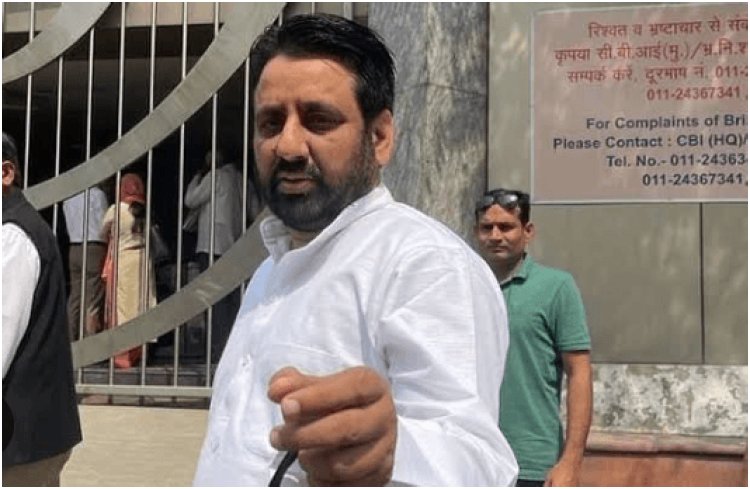ED Cracks Down: AAP MLA Amanatullah Khan Faces Raids Amid Money Laundering Probe
ED Cracks Down: AAP MLA Amanatullah Khan Faces Raids Amid Money Laundering Probe

Enforcement Directorate has intensified its crackdown on alleged money laundering activities involving Amanatullah Khan,
Prominent Aam Aadmi Party (AAP) MLA from Delhi. In a series of raids conducted recently, the Enforcement Directorate targeted multiple locations linked to Khan, including his residence and offices, as part of an ongoing investigation into his financial dealings. The raids mark a significant escalation in the probe, which has put Khan and his political career under intense scrutiny.
The Enforcement Directorate actions are part of a broader investigation into allegations that Khan was involved in laundering large sums of money through a network of associates and shell companies. The investigation initially stemmed from complaints of corruption and irregularities in the allocation of funds by the Delhi Waqf Board, of which Khan is the chairman. These complaints, which were first raised by political opponents and some members of the public, suggested that funds meant for the welfare of the Muslim community were being misappropriated.
The raids carried out by the Enforcement Directorate were extensive, with teams of officers fanning out across multiple locations in Delhi and beyond. Sources within the agency have indicated that a significant amount of incriminating evidence was seized during the raids, including documents, electronic devices, and financial records. The Enforcement Directorate is now in the process of analyzing this material to build a stronger case against Khan and to trace the flow of funds through the alleged laundering network.
Khan, who has consistently denied any wrongdoing, has dismissed the allegations as politically motivated. In public statements, he has accused the central government of using investigative agencies like the Enforcement Directorate to target opposition leaders and undermine the AAP’s credibility. Khan’s supporters, including senior AAP leaders, have rallied behind him, echoing his claims of political vendetta. They argue that the timing of the raids, coming as the AAP government in Delhi continues to clash with the central government on various issues, is indicative of an attempt to weaken the party’s leadership.
The AAP, which has often positioned itself as a clean and transparent alternative to India’s traditional political parties, finds itself in a delicate position. The allegations against Khan, a key figure in the party, have the potential to tarnish its image and erode public trust. The party’s leadership, including Chief Minister Arvind Kejriwal, has been vocal in its defense of Khan, but the controversy has undoubtedly placed them on the defensive.
Supporters of the government, however, maintain that the Enforcement Directorate is simply doing its job by investigating serious allegations of financial misconduct. They argue that no one, regardless of their political affiliation, should be above the law, and that the agency’s actions are a necessary part of ensuring accountability and transparency in public life. According to them, the fact that Khan is a sitting MLA should not exempt him from scrutiny if there is credible evidence of wrongdoing.
The developments in this case will be closely watched, not just by those directly involved, but by the wider public and political observers across the country. The outcome could have far-reaching consequences for the AAP, the opposition’s role in Indian politics, and the broader discourse on the use of investigative agencies in political matters.
As the situation unfolds, it is clear that the stakes are high for all parties involved. For Amanatullah Khan, the immediate priority will be to clear his name and restore his reputation. For the AAP, the challenge will be to navigate this crisis while maintaining its commitment to transparency and good governance. And for the central government and the Enforcement Directorate , the focus will be on proving that the actions taken were justified and root in a genuine pursuit of justice, rather than political expediency.

 shivani
shivani 



